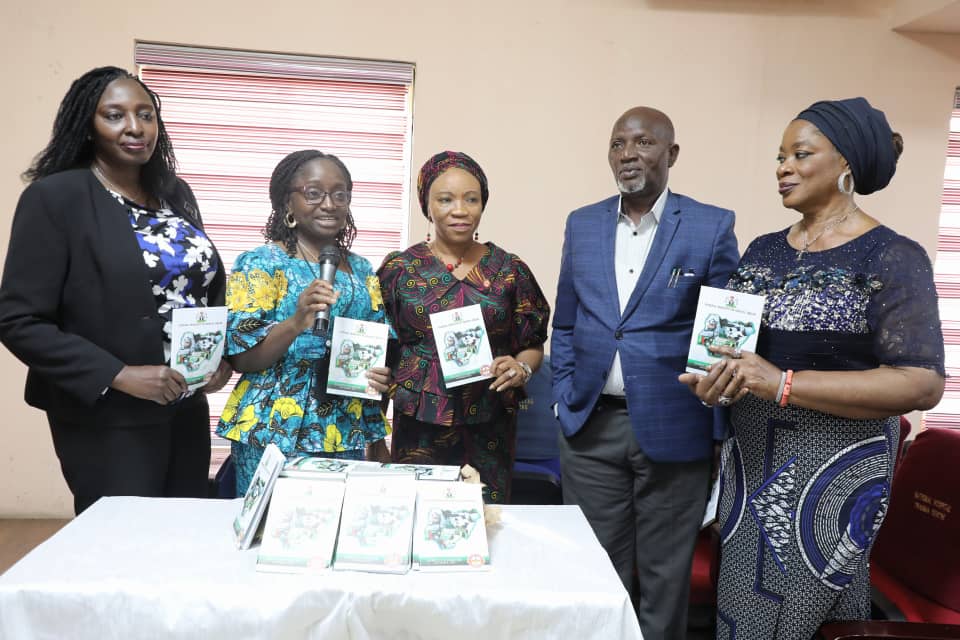
By Fatima Saka
In an effort to improve maternal health, the Federal Government, under the auspices of the Federal Ministry of Health and Social Welfare, has initiated the distribution of millions of Multiple Micronutrient Supplements (MMS) to pregnant women throughout Nigeria.
The MMS aims to address their nutritional requirements and significantly diminish the prevalence of micronutrient deficiencies.
This endeavor is in accordance with the recommendations of the World Health Organization (WHO) and aligns with the Ministry’s second pillar of the 4-point agenda aimed at improving overall population health outcomes. This initiative is particularly crucial in light of the Global Nutritional Report 2022, which highlighted the substantial challenge Nigeria faces in reducing anemia among women of reproductive age.
As stated in a recent announcement by the Assistant Director of Information and Public Relations in the Ministry, Mr. Ado Bako.
According to the statement Iron Deficiency Anaemia (IDA) remains the predominant micronutrient deficiency affecting over 60% of pregnant women, according to the National Demographic and Health Survey (NDHS) 2018. These deficiencies not only pose significant health risks to pregnant women but also heighten the likelihood of low birth weight, stillbirths, and developmental delays in children.
The introduction of MMS presents a holistic approach to these challenges. This daily supplement, comprising 15 essential vitamins and minerals tailored for consumption throughout pregnancy, has emerged as a cost-effective solution in global maternal health interventions. It has been proven to reduce the risk of low birth weight by 21%, stillbirths by 9%, and cases of small for gestational age (SGA) by 10%.
The incorporation of MMS into the National Guidelines for the Prevention and Control of Micronutrient Deficiencies in 2021 underscores the government’s commitment to enhancing maternal and child health services. The national rollout of MMS is being managed through antenatal care (ANC) services, with distribution occurring at primary health centres (PHCs) during routine appointments. The anticipated demand for 2024 is estimated to be approximately 421 million MMS tablets to cater to pregnant women’s needs.
To date, over 1.3 million bottles have been disseminated across 12 states, with an additional 3 million bottles slated for delivery by the end of September. The Ministry is also intensifying its efforts through research initiatives and collaborations with non-state entities to enhance efficient community-based distribution.
While the recent support and contributions from various international partners such as UNICEF and the Bill & Melinda Gates Foundation have been invaluable to this initiative, it is essential to note that the doses received merely supplement the allocated doses for the rollout.
In line with President Bola Ahmed Tinubu, GCFR’s objective to boost and prioritize local production within the country, the Federal Government is collaborating with domestic manufacturers to ensure a sustained supply and reduce the importation of MMS. This approach aims to fortify both the health and economic sectors of the nation.
Furthermore, to optimize the impact of this rollout, the Ministry has implemented Social and Behaviour Change (SBC) interventions, involving families, communities, and healthcare providers to raise awareness about the benefits of MMS and promote adherence among pregnant women. In the forthcoming weeks, a National Roadmap (2024-2027) will be unveiled to guarantee continuous and equitable distribution of MMS nationwide, with a focus on high-risk regions and ensuring that local adaptations cater to the specific requirements of each state.
The Federal Ministry of Health and Social Welfare remains steadfast in providing access to affordable and high-quality healthcare services. The introduction of MMS signifies a landmark achievement in Nigeria’s ongoing quest for a healthier future. This initiative serves as a testament to the Government’s dedication to fostering a robust and sustainable healthcare system.





